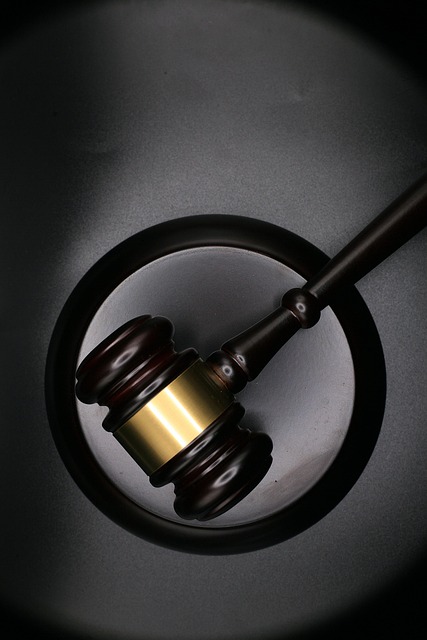Public corruption charges, particularly involving environmental misconduct, can significantly impact businesses, especially those facing complex regulatory challenges. To navigate these legal hurdles effectively, companies must prioritize environmental compliance and implement robust strategies. This includes strong internal controls, transparent practices, meticulous record-keeping, thorough supplier vetting, ethical guidelines, staff training, and staying informed about legislative changes. Engaging specialized legal counsel can be pivotal for understanding anti-corruption measures, mitigating risks, protecting reputations, and ensuring business continuity.
“Public Corruption Charges: Navigating Legal Quagmires and Environmental Compliance in Business Operations
This article delves into the complex web of public corruption charges, examining their definition, impact on businesses, and the critical role of environmental compliance as a countermeasure. We explore the legal challenges faced by companies accused of environmental corruption, offering insights into strategic navigation and risk mitigation in corrupt environments. Understanding these dynamics is essential for businesses aiming to operate ethically and responsibly.”
- Understanding Public Corruption Charges: Definition and Impact on Businesses
- Environmental Compliance: A Crucial Aspect in the Fight Against Corruption
- Legal Challenges Faced by Businesses Accused of Environmental Corruption
- Strategies for Businesses to Navigate and Mitigate Risk in Corrupt Environments
Understanding Public Corruption Charges: Definition and Impact on Businesses
Public corruption charges refer to allegations of misconduct by public officials or entities involving misuse of power, influence, or resources for personal gain, often at the expense of the public interest and good governance. This can manifest in various forms, such as bribery, extortion, fraud, and abuse of office. These charges significantly impact businesses, particularly those operating in sectors with strict environmental regulations.
For companies navigating complex environmental compliance legal challenges, understanding the potential implications of public corruption is crucial. While a complete dismissal of all charges is ideal, avoiding indictment and successfully navigating all stages of the investigative and enforcement process can be pivotal for business continuity. Corruption investigations often involve intricate financial transactions, documentation, and relationships, requiring businesses to maintain robust internal controls, transparent practices, and meticulous record-keeping to mitigate risks and ensure compliance with both legal requirements and ethical standards.
Environmental Compliance: A Crucial Aspect in the Fight Against Corruption
Environmental compliance is a vital aspect of the ongoing battle against public corruption. As businesses operate in an increasingly regulated landscape, understanding and adhering to environmental laws is essential to navigate legal challenges. The intricate nature of these regulations presents unique difficulties for companies, especially during investigations and enforcement processes across the country.
Companies must be vigilant at every stage of the investigative and enforcement process, ensuring they possess robust internal controls and procedures to meet environmental standards. A general criminal defense strategy that incorporates environmental compliance measures can significantly mitigate potential risks. By proactively addressing these legal challenges, businesses can contribute to a more transparent and honest marketplace while avoiding costly fines and reputational damage associated with corruption scandals.
Legal Challenges Faced by Businesses Accused of Environmental Corruption
Businesses accused of environmental corruption often face a myriad of legal challenges, with environmental compliance becoming a complex and intricate issue. These cases are typically governed by stringent regulations designed to protect natural resources and ecosystems. When a business is suspected of non-compliance or unethical practices, they must navigate a maze of legal procedures, each with its own set of complexities and potential consequences. The process can be particularly daunting, especially for smaller respective businesses that may lack the expertise or resources to defend themselves adequately.
The primary legal challenges often include proving intent, understanding the nuances of environmental laws, and demonstrating due diligence in adhering to regulatory requirements. Accused companies must present robust defenses, showing that they took all necessary steps to ensure compliance for his clients. A complete dismissal of all charges is possible but requires meticulous documentation, expert testimony, and a thorough examination of the facts to disprove any allegations of misconduct or intentional environmental harm.
Strategies for Businesses to Navigate and Mitigate Risk in Corrupt Environments
In environments rife with public corruption, businesses face unique challenges that extend beyond simple profitability. To navigate this complex landscape successfully, companies must adopt robust strategies focused on environmental compliance and mitigating legal risks. This proactive approach involves implementing stringent internal controls, thoroughly vetting partners and suppliers to ensure their integrity, and establishing clear ethical guidelines for employees at all levels. Regular training sessions can educate staff about the red flags associated with corrupt practices, empowering them to make sound ethical decisions.
Moreover, businesses should stay abreast of legislative changes and regulatory updates that could impact operations in corrupt regions. Engaging experienced legal counsel specializing in international business law and anti-corruption measures is instrumental in understanding and adhering to evolving standards. This strategic move not only helps companies avoid legal pitfalls but also enhances their public image as responsible corporate citizens. In high-stakes cases involving jury trials, a solid defense strategy that underscores the company’s commitment to ethical conduct can significantly mitigate potential damage to both its reputation and bottom line.
Public corruption charges pose significant challenges for businesses, particularly in the realm of environmental compliance. As these cases gain prominence, understanding the legal landscape and implementing robust strategies become essential. By addressing environmental concerns honestly and transparently, companies can navigate these complex environments, mitigate risks, and contribute to a more sustainable and fair business ecosystem. Staying informed about legal developments and adopting proactive measures are key steps towards fostering integrity in corporate practices.






